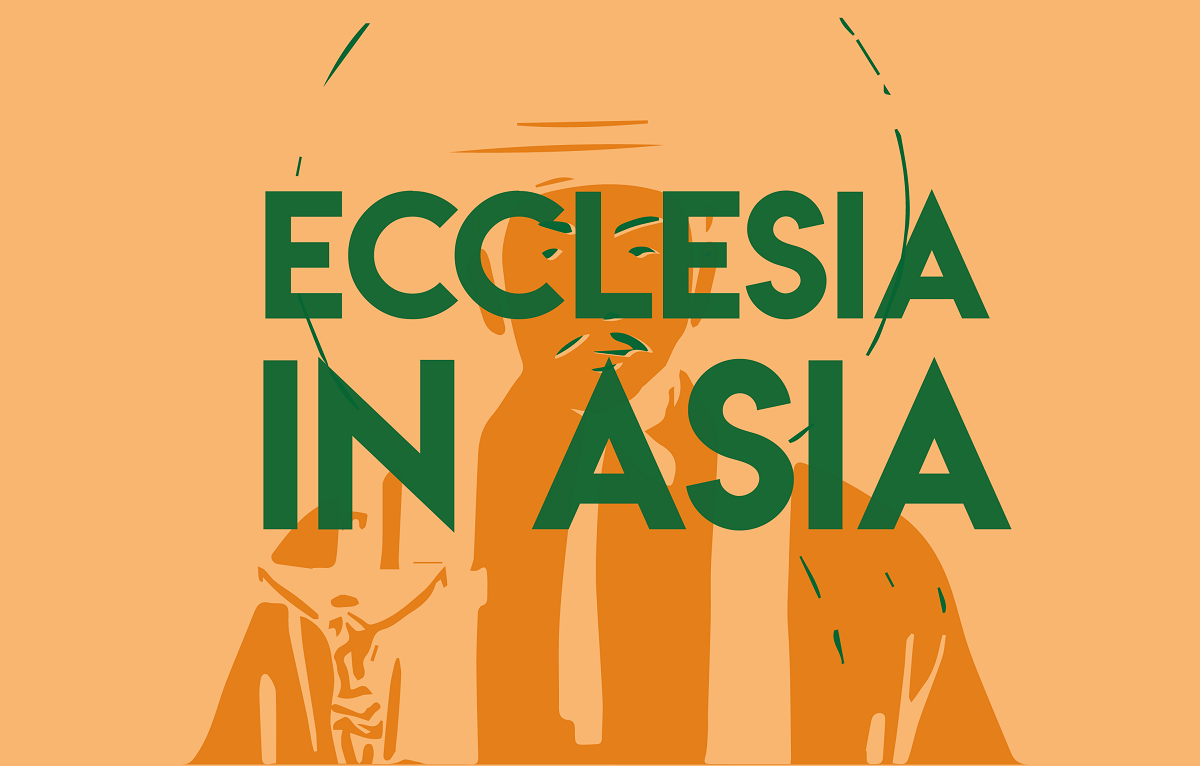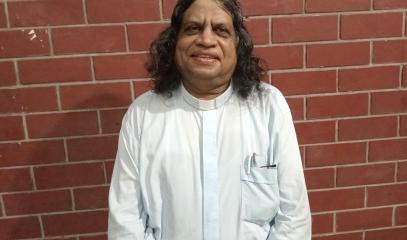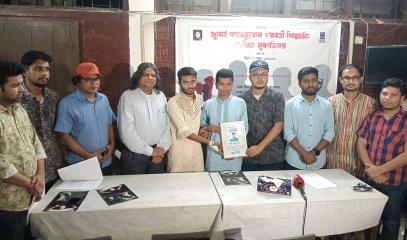Fr. Tapan, a Catholic priest among the lecturers at Dhaka University
The testimony to AsiaNews of the priest who teaches at the department of religions at the public university in a country with an overwhelming Muslim majority: ‘For many here it is the first opportunity in their lives to deal with a Christian. I never enter the classroom without wearing my collar and cross. Education has a fundamental role in dispelling ignorance and promoting empathy and dialogue’.
Dhaka (AsiaNews) - Catholic priest and lecturer at a large public university in a Muslim country. This is the mission of Fr. Tapan Camillus De Rozario, associate professor in the Department of World Religions and Culture at the University of Dhaka, a prestigious university (they call it the ‘Oxford of the East’) with 50,000 students.
Ordained a priest by Pope John Paul II on 19 November 1986, Fr. Tapan holds a doctorate in Biblical Theology from the Pontifical Urbanian University and taught at the Major Seminary of the Holy Spirit.
His collaboration with Dhaka University began in 2003, when he was invited to teach Christianity and Judaism as a guest professor, once a week. Then came the opportunity to join the university staff in 2010, a task he took on with the support and encouragement of the then Archbishop Michael Rozario. From 2015 to 2018, he was also chairman of the Department of World Religions and Culture.
‘My teaching ministry at Dhaka University is deeply rooted in interreligious dialogue and understanding,’ Fr Tapan tells AsiaNews. He teaches about twelve courses covering a broad spectrum of religious traditions, including Christianity, Hinduism, Islam, Buddhism, Judaism, indigenous religions and other courses.
‘My presence in the department is unique in that I believe I am the only diocesan priest teaching in a public university within the South Asian Association for Regional Cooperation (SAARC) countries. My commitment goes beyond academic studies, as I actively participate in extracurricular activities such as Dhaka University Mime Action (DUMA) and Dhaka University Leadership Development Society (DULDS)'.
In addition, he is dedicated to ecumenical and interreligious dialogue, creating a basis for Christian witness and a priestly ministry aimed at the holistic formation of the younger generation. His work provides the opportunity for many students, who have probably never met a Christian before, to be confronted with the Christian faith first-hand.
As a priest teaching at the University of Dhaka, he has encountered many barriers, mainly due to different religious perspectives and societal preconceptions. Challenges that required patience, openness and commitment in promoting mutual respect and understanding.
‘Through dialogue and a focus on shared human values, I gradually overcame these obstacles, building bridges with students and colleagues,’ he explains. ’My priestly vocation, rooted in compassion and inclusion, has been instrumental in creating an environment where different faiths can co-exist, contributing to the holistic formation of the young minds I serve.
‘I have never entered classrooms without wearing my collar and cross,‘ he recalls. “As a teacher, students call me ”Father’. But there are also some radical Islamists who mock them by saying, ‘How many fathers do you have?’’.
In today's world, violence in the name of religion is a common problem in many regions. As a priest and teacher, Fr. Tapan believes its elimination begins with promoting understanding and respect for all faiths: ‘Education has a key role in dispelling ignorance and promoting empathy. By encouraging students to engage in interfaith dialogue, we can help them appreciate the common values shared between religions, such as peace, compassion and justice’.
‘As a priest in a public university,’ he continues, ’my role is to witness to the teachings of Christ, particularly his message of love and non-violence, while respecting the beliefs of others. Building relationships rooted in trust and mutual respect, inside and outside the classroom, can break down the barriers of fear and prejudice. True peace can only be achieved when we embrace the dignity of every individual, regardless of their faith’.
Fr. Tapan believes that the beauty of the Department of World Religions and Culture lies in its diverse and dialogic environment, where students of various faiths explore global religious traditions together. This openness fosters mutual respect and understanding, embodying the department's motto: ‘Religion for Peace’.
‘In the classroom, I encourage open-mindedness and understanding, reflecting Christ's message of love and acceptance. By promoting dialogue and creating space for diverse perspectives, I aim to build a community of students who value peace, justice and service to others. My approach to teaching is rooted in humility and a commitment to nurture the holistic growth of my students, guiding them towards compassionate living.’
In his department, he promoted the establishment of a Library named after the servant of God T. A. Ganguly, who was Archbishop of Dhaka from 1967 to 1977, and also personally donated five computers for student activities.
‘I was inspired to honour the memory of Archbishop Garguly, whose dedication to education resonates deeply with my mission. The creation of this library promotes Christian thought, fosters interfaith dialogue and provides valuable educational resources to nurture young minds. By continuing to promote dialogue and understanding between students of different faiths and cultures, we can create a more inclusive and harmonious academic environment. I remain committed to supporting this vision, encouraging the next generation to contribute to global peace and unity. I wish and pray that other clergy will be able to follow in my footsteps at this University'.
ECCLESIA IN ASIA IS THE ASIANEWS NEWSLETTER DEDICATED TO CHRISTIAN COMMUNITIES IN ASIA. WOULD YOU LIKE TO RECEIVE IT EVERY SUNDAY? TO SUBSCRIBE, CLICK HERE.
19/05/2024 13:39
25/02/2024 12:52









.png)










